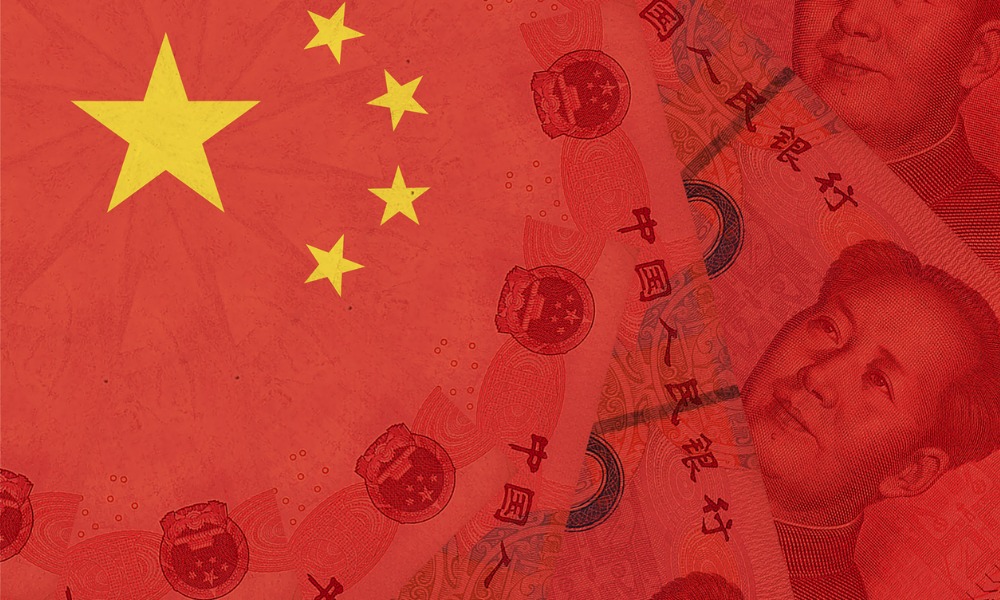After Chinese property giant missed US$83.5 million in payments last week, investors in its bonds have few good options

Last week, all eyes were on Evergrande, a Chinese property development giant that had dug itself into a US$89-billion hole of offshore debt that was proving exceedingly difficult for the company to climb out of. In fact, it might actually be impossible, as the embattled giant missed making US$83.5 million in coupon payments it owed.
To the average Canadian investor, this might mean little; as large as the company’s Chinese footprint is, analysts have said its troubles are not likely to have significant implications on the country’s economy or broader stock market. But for those who invested in the company’s debt and are now staring down the barrel of a possible default, there’s a lot to unpack.
According to the Wall Street Journal, the company has roughly US$304 billion in total liabilities – including more than US$19 billion in outstanding U.S. dollar bonds – that may wind up having to undergo a complex restructuring process. It has another US$45-million bond interest payment due today, which investors doubt it will be able to pay given its silence on its international bonds.
“Evergrande’s 8.25% bonds that didn’t receive coupon payments last week have been trading around 29 cents on the dollar, a price that implies investors expect to recover less than a third of the bonds’ original value,” the Journal said.
A big X factor, according to Karl Clowry of Addleshaw Goddard LLP in London, who represents a number of offshore bondholders, would come from large domestic stakeholders. “It’s more a matter of how much the Chinese authorities and large onshore stakeholders will allow foreign bondholders to receive,” he told the Journal.
For offshore debtholders seeking to make a claim, the process could be thorny and tangled. According to the Journal, China Evergrande is incorporated in the Cayman Islands, with subsidiaries incorporated in the British Virgin Islands. And while the conglomerate has some Hong Kong assets, most are in mainland China.
Because the bonds are under the jurisdiction of New York law, some legal experts suggested bondholders could consider filing a claim there. But even if they were to prevail in a court in New York, the Cayman Islands, or the British Virgin Islands, the judgments would still have to be enforced in China.
Of course, Chinese authorities have some interest in preserving the interests of offshore bondholders. A negative experience could make them less willing to extend credit to other Chinese private companies, which will also need to refinance their own dollar-denominated debt.
“There are signals that Chinese authorities are becoming more involved in Evergrande’s restructuring, which points to an increasing likelihood of an orderly process,” said Paul Lukaszewski, head of corporate debt for the Asia Pacific region at asset-manager Abrdn. “This should benefit all creditors.”
While the Evergrande saga most immediately affects the company’s debtholders, it may also contain a kernel of a lesson for investors in Chinese stocks. According to Wall Street Journal columnist James Mackintosh, leading emerging-market equity indexes had anywhere from 34% to 37% of their total capitalization in China at the end of last month.
From that point in time back to its February peak, the MSCI China Index has shed 30%. Go back to its inception in 1992, and the Chinese equity index posts a 2.2% average annual loss, including dividends; in contrast, the MSCI Emerging Markets Index grew 7.8% annually, while the S&P 500 displayed 10.7% average annual growth.
According to Mackintosh, that track record – coupled with recent policy moves by the Chinese government – shows that “nobody knows anything.” That is, Chinese corporations and their investors are ultimately subject to the whims of Xi Jinping and the ruling communist party.
“[E]ven if professional investors—the so-called smart money—did have special insight into what the Chinese government was going to do next, they would hardly be able to act on it,” he said. “Were they to do so, that might lower your risk—but it would almost certainly increase theirs.”


